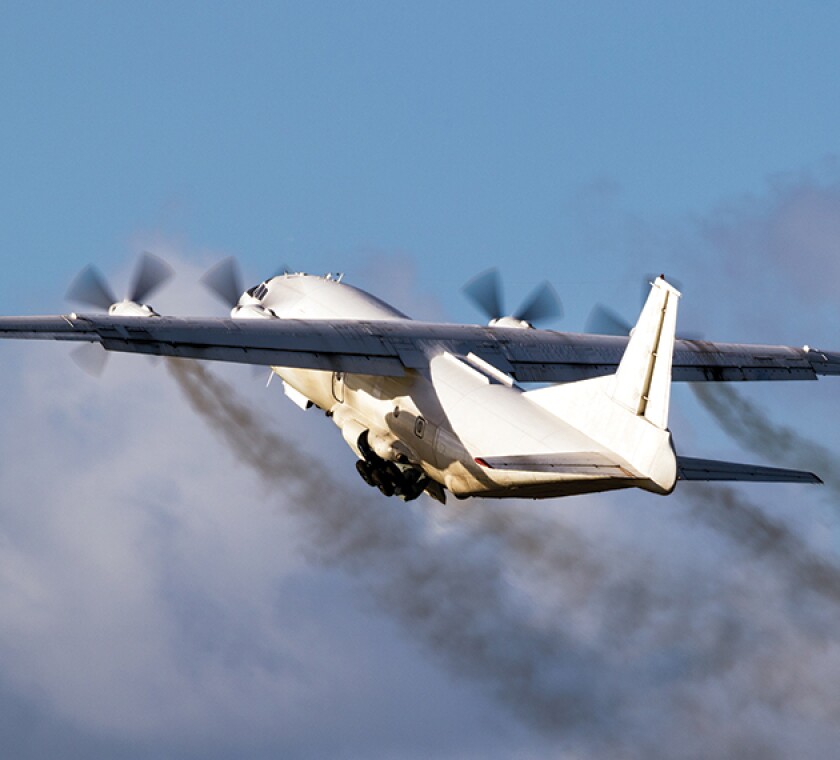The aviation industry is in a precarious position. COVID-19 presents an unprecedented obstacle and discussions over environmental taxation could give rise to new taxes on the sector.
ITR Senior Reporter Mattias Cruz spoke with Thomas Reynaert, A4E's managing director, about a potential tax on jet fuel, discussing its effectiveness, the impact for the sector, and alternatives to this measure.
Mattias Cruz: How does the aviation sector see the discussions over a tax on airplane fuel?
Thomas Reynaert: The discussion on aviation taxes is not new, but the discussion about removing the exemption of VAT is new. There are seven aviation taxes in Europe and the UK's air passenger duty (APD) – originally conceived as an environmental tax – is the highest aviation tax in the world.
Taxes take money away from airlines to develop new technologies which would help us better decarbonise. Alongside other taxes, a tax on fuel is not very effective. The sector is looking at different ways to reduce its environmental footprint, but no credible study shows that a tax on fuel would change consumer attitudes towards flying, rather it would result in flights simply becoming more expensive. The latest Eurocontrol research (Think Paper #7, October 2020) shows there is little evidence that taxing aviation leads to lower CO2 emissions, nor does raising fuel prices or ticket prices.
The Dutch government carried out a study on the impact a tax on fuel would have on the Dutch economy and the environment. It concluded that in the short-term, there would be an impact on air traffic but in the mid to long-term, it would have no significant impact.
So, this tax has nothing to do with benefitting the environment. It is certainly not welcome in a highly competitive and cost-driven sector that is currently on its knees due to COVID-19. For politicians it's an easy box to tick to please their constituents, but for the aviation sector it doesn't help anyone – not our environment, nor our passengers. The International Air Transport Association has forecast that it will take until 2024 before airlines can recover from the current crisis. It's simply the worst timing possible to introduce such a measure, and for all the wrong reasons.
Mattias: What could happen in the case that a tax was introduced?
Thomas: The idea is that removing the VAT exemption would increase the cost of flying (airline costs and ticket prices), which would reduce demand and therefore emissions. The question is whether this would seriously reduce emissions, however.
The 2019 European Commission (EC) tax study – whose methodology we believe is flawed – said there would be an 11% drop in demand, resulting in an 11% drop in flights, and hence an 11% drop in emissions. This methodology can certainly be questioned. In any case, airlines have no fuel-based alternative at the moment. So, the price would be higher, but we would still need long-term solutions to cut carbon, e.g. by using sustainable aviation fuels (SAFs).
Depending on the VAT rate and the scale, such a tax may end up hitting passengers so severely that some may not be able to afford to fly. This is especially damaging for travellers in Europe's periphery, or island regions who depend on air travel. But the bottom line is that a fuel tax is not going to dramatically reduce CO2 emissions. The planes will still take off, albeit with less passengers. This would have the opposite intended effect in terms of flight efficiency.
A tax on fuel would also have a huge financial impact on the entire aviation ecosystem at a time when Eurocontrol is predicting losses totalling €140 billion ($163.4 billion) this year. When you consider the much-needed financial recovery from the COVID-19 crisis, such a tax would also negatively affect EU airlines' competitiveness relative to the rest of the world, with the risk that we lose market share and/or risk carbon leakage by, for example, passengers driving from the Netherlands over the border to Germany to fly from German airports, to avoid paying the tax.
The EC tax study estimated the financial cost of a fuel tax would be €27 billion.
Fuel represents a third of our costs, so if the fuel price goes up, there will be victims. In an age of COVID-19, we need support and sensible solutions. More taxes is definitely not one of them.
Mattias: What are some alternatives that would help address emissions?
Thomas: For decades, airlines have been focused on reducing emissions through fleet modernisation. Manufacturers are constantly being pressured by airlines to develop more fuel-efficient planes and related technologies. The decarbonisation of air transport is constantly in the focus, also politically with the EU's Green Deal and the need for aviation to meet climate change targets in the future.
Over the next 10 years, A4E airlines plan to invest €169 billion in greener aircraft technologies, which are on average 25% cleaner and less noisy than their predecessors. We see this as a good solution, one of several that will go hand-in-hand to help our sector to decarbonise.
We have also been pushing for a more modern, digitalised air traffic management network. If we would be able to fly in a more direct way from A to B instead of having to zigzag in airspace blocs, we could reduce emissions by up to 10%. Progress on the long-awaited single European sky (SES) has been blocked because of politics for more than a decade. Just recently the European Commission announced an updated regulatory framework so that the SES can finally move forward – this update was mainly driven by environmental concerns across Europe and a renewed focused on digitalisation. In any case, having a SES in the future is a key part of our decarbonisation strategy.
In parallel, airlines themselves have begun investing in projects for alternative fuel production – anything that would allow us to blend the kerosene with more sustainable options. These sustainable aviation fuels (SAFs) are more effective because you can reduce CO2 emissions by up to 80%! But the reality is there's not enough capacity for aviation here in Europe, and they currently cost up to three times as much as kerosene. We need governments to support the scaling up of SAFs and help to make them more affordable in the future.
In short, we believe there are far better ways to decarbonise our sector than punitive taxes. Emissions are a global problem. We need to have a global solution when it comes to carbon offsetting and reduction – and we have that with the UN-backed carbon off-setting and reduction scheme for aviation, called CORSIA. Aviation is the only industry to have such a scheme in place.
It's easy to slap a fuel tax on a ticket in the name of benefitting the environment, but the reality is there are much smarter and more effective ways to achieve a greener air transport of the future. Remember that flying is not the enemy – CO2 is.











